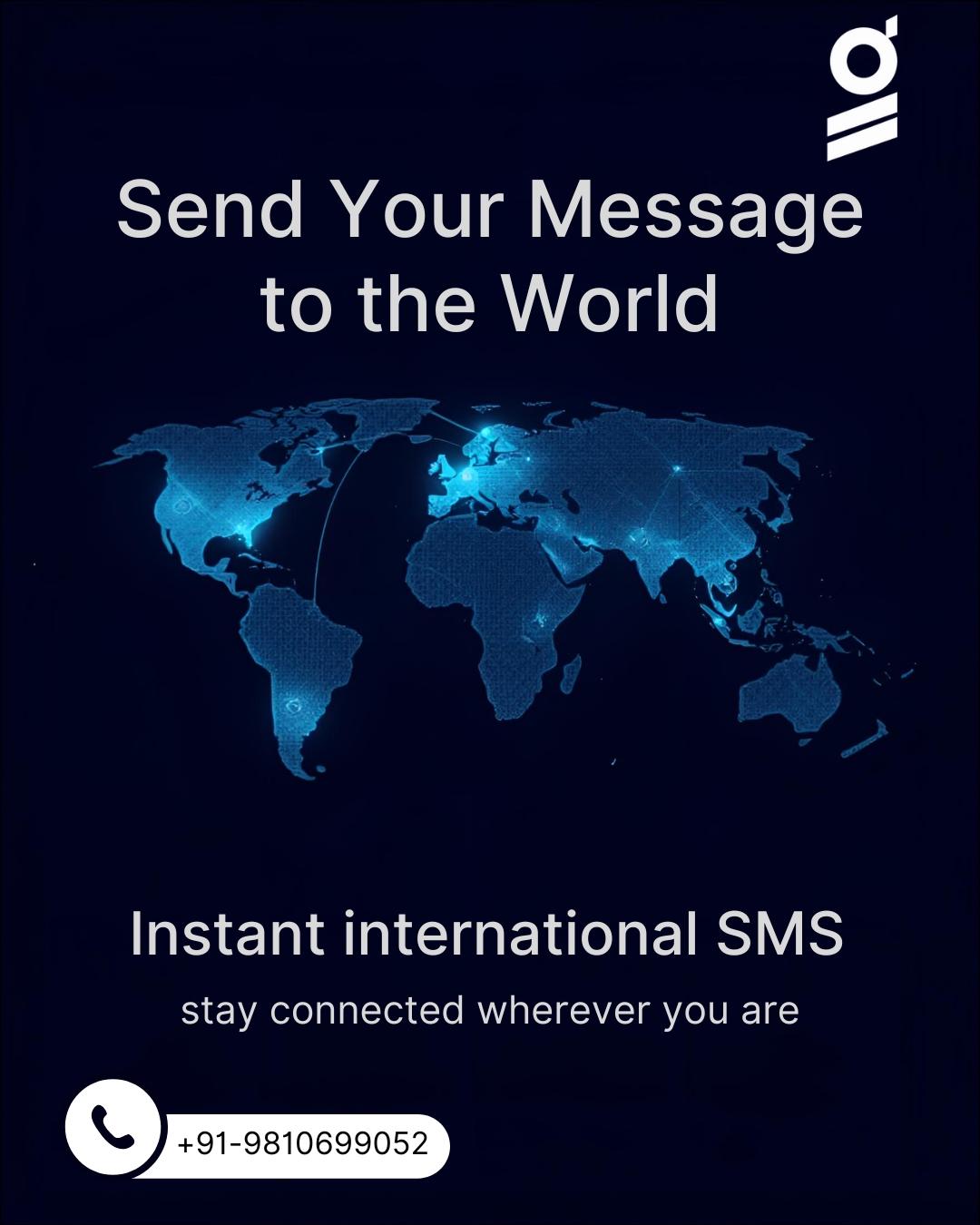In today’s interconnected world, businesses are no longer confined by geography. Whether it’s an online retailer selling worldwide or a financial service provider operating across continents, effective communication with customers remains the foundation of success. That’s where Global Business Messaging comes in — a unified solution that helps brands connect, engage, and support customers anywhere in the world, through their preferred messaging channels.
As communication technologies evolve, global business messaging has become a critical part of digital transformation strategies. It enables seamless, reliable, and real-time interactions between brands and consumers across multiple platforms — from SMS and WhatsApp to RCS and email.
What Is Global Business Messaging?
Global Business Messaging refers to the use of international communication channels that allow companies to reach customers worldwide for marketing, customer support, transactional alerts, and engagement campaigns.
It combines traditional channels like SMS with modern platforms such as WhatsApp Business API, Rich Communication Services (RCS), Facebook Messenger, and Viber, giving organizations a versatile toolkit for customer communication.
Essentially, it allows businesses to speak to customers in their language, time zone, and platform of choice, ensuring stronger relationships and higher satisfaction.
The Evolution of Global Messaging
For years, International SMS was the dominant form of global communication. It provided reliable message delivery across borders but offered limited interactivity. As mobile technology advanced, new messaging solutions emerged — bringing rich media, automation, and conversational engagement into the mix.
Now, global business messaging integrates AI chatbots, APIs, and cloud platforms, making communication smarter, faster, and more personal. It’s no longer just about sending messages — it’s about creating meaningful, two-way interactions that drive loyalty and conversions.
Key Features of Global Business Messaging
-
Omnichannel Connectivity
Businesses can connect with customers via multiple messaging platforms — including SMS, WhatsApp, RCS, and email — all managed through a single unified system. -
Scalability and Reach
Global business messaging ensures coverage across 200+ countries and supports billions of devices, enabling brands to communicate at scale with diverse audiences. -
Personalized and Automated Messaging
APIs and AI tools allow for personalized interactions and automated responses, improving efficiency and relevance. -
Rich Media Support
Modern channels support images, videos, links, and interactive buttons, making business messages more engaging and actionable. -
Secure and Compliant Communication
Leading platforms ensure compliance with international regulations like GDPR, TCPA, and TRAI, safeguarding user data and brand reputation. -
Analytics and Reporting
Detailed delivery reports, engagement rates, and campaign insights help businesses measure effectiveness and optimize strategies.
Benefits of Global Business Messaging
1. Wider Customer Reach
By leveraging global networks, businesses can communicate with customers anywhere, anytime, regardless of their mobile carrier or device type.
2. Improved Engagement and Conversion Rates
Interactive features like buttons, carousels, and chatbots transform messaging into a two-way conversation, leading to higher engagement and conversions.
3. Consistent Brand Communication
With centralized management across multiple platforms, brands can maintain consistent messaging, tone, and design globally.
4. Cost Efficiency
Compared to traditional international calls or advertising, global business messaging is far more affordable while offering measurable results.
5. Enhanced Customer Support
24/7 support becomes possible through chatbots and automation, ensuring customers get help instantly — regardless of time zones.
Common Use Cases
-
Marketing Campaigns: Promote products, launch offers, and share updates across international markets.
-
Transactional Messaging: Deliver order confirmations, payment receipts, and shipping updates securely.
-
Customer Service: Enable real-time support through AI chatbots or live chat agents.
-
Alerts and Notifications: Send time-sensitive reminders, security alerts, or appointment confirmations.
-
Feedback and Surveys: Collect customer opinions through interactive message formats.
Why Global Business Messaging Matters Today
In an era where digital communication defines customer relationships, business messaging is not just a tool — it’s a strategy. Customers expect immediate, personalized, and secure interactions, no matter where they are.
Global business messaging empowers brands to:
-
Build trust through consistent, reliable communication.
-
Deliver localized experiences for diverse global audiences.
-
Respond quickly and effectively through automation.
-
Stay compliant with local and international communication standards.
With the rise of AI, automation, and 5G connectivity, the future of business messaging is even more dynamic and intelligent — driving real-time commerce and engagement on a global scale.
Conclusion
Global Business Messaging is transforming the way brands connect with audiences worldwide. By integrating multiple messaging platforms into one seamless system, businesses can deliver personalized, timely, and interactive communication that drives loyalty and growth.
As global markets become increasingly digital, adopting a comprehensive business messaging strategy isn’t just an advantage — it’s a necessity. Whether it’s through SMS, WhatsApp, RCS, or email, global business messaging ensures that your brand’s voice reaches every customer, everywhere.
In a connected world, communication builds relationships — and with global business messaging, those relationships can truly go the distance.



